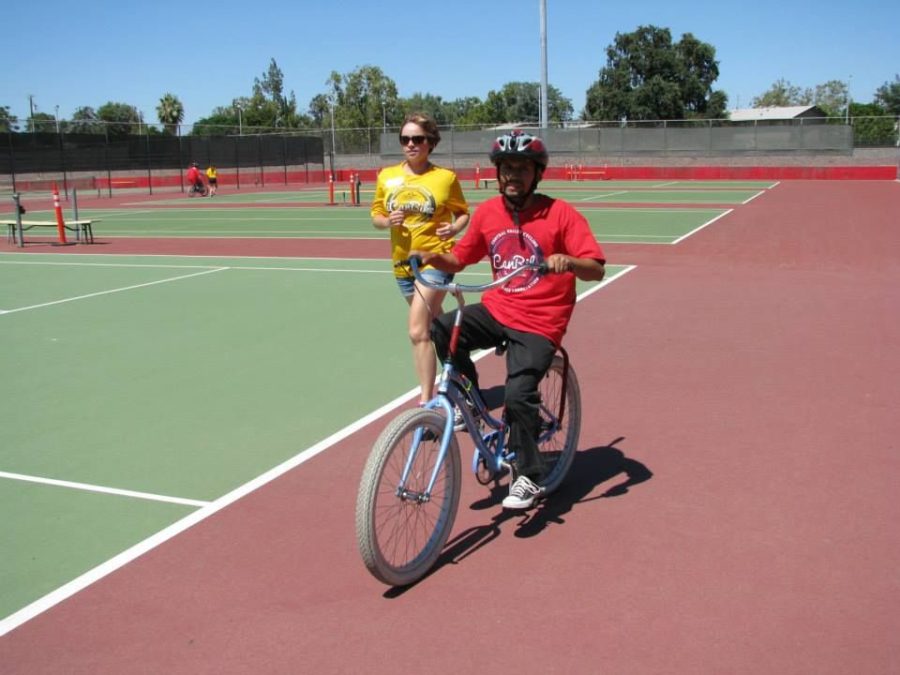Students bring bike camp to Ames for people with disabilities
Courtesy of Kelly Hoffman/iCan Bike Fresno Clovis
Ciara McCarty, senior in kinesiology, jogs alongside one of the participants of the iCan Bike camp in Fresno, Calif. last summer.
May 29, 2015
It’s the first of its kind in Iowa, and it was organized by four ISU students.
The iCan Bike camp is a five-day event aimed at teaching people with disabilities to ride a bicycle. It will take place June 1-5 at the All-Iowa Attack facilities and features 75-minute sessions.
Ciara McCarty, senior in kinesiology, was inspired to organize the camp after volunteering for the iCan Bike camp in Fresno, Calif., last summer.
“It was really rewarding to see the progression of the campers, and how happy it made them,” McCarty said.
McCarty said her most inspirational memory from the camp was when an 8-year-old boy took a hard fall off his bike, and instead of giving up, he got right back up and started pedaling again.
“I thought for sure he was going to not want to get on the bike again, [and] just go hang out with his mom for the rest of the camp,” McCarty said. “[He] got right up back on the bike, and just kept going. We were really excited to see that he still wanted to ride, even after hurting himself.”
After falling in love with the camp in Fresno, McCarty and Katie Cook, ISU camp director, decided to bring it to Ames. Jeff Robson and Jenna Ham, kinesiology students, also assisted in the organization of the camp.
The Arc of Story County, an advocacy based non-profit organization in Ames, donated about $5,000 to the camp. According to its website, the organization advocates for people with intellectual and developmental disabilities, preserving and protecting their fundamental rights through advocacy and action in support of legislation for civil rights, employment, housing and support.
“[The Arc of Story County] has done wonders for us,” McCarty said. “They’ve donated a lot of time, a lot of money [and] helped us find a facility. They’re a big part of it.”
The first day of the camp provides participants with modified bikes that have a rolling pin-like back wheel to ride and learn balance without the fear of falling.
A bike technician, who’s in charge of making sure all the bikes work and getting them fitted for the riders, will be present during day two of the camp. The technician rides with each participant on a tandem bike to assess progression.
“With people with special needs, it usually takes a bit longer for them to pick up on it, and parents and guardians don’t always have the time needed for their kids to learn to ride a bike successfully,” McCarty said.
Wednesday is the first day participants have the opportunity to ride a traditional bike, depending on how well they did on the tandem bike. Participants will either practice on a roller bike or two-wheel bike for the last three days of the camp.
“Not only does it help with their learning a bike, but they get the confidence, they get just kind of that whole self-fulfilling type of thing that they finally learned how to do this,” McCarty said.

















